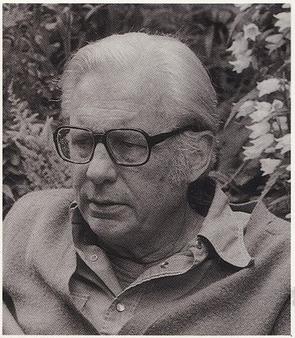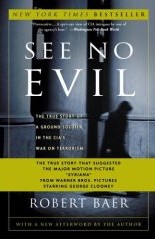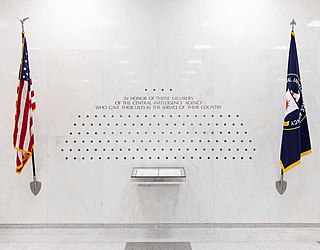Related Research Articles

Ali Hassan Salameh was a Palestinian militant who was the chief of operations for Black September and founder of Force 17. He was assassinated by Mossad in January 1979 as part of Operation Wrath of God.

The 1958 Lebanon crisis was a political crisis in Lebanon caused by political and religious tensions in the country that included a United States military intervention. The intervention lasted for around three months until President Camille Chamoun, who had requested the assistance, completed his term as president of Lebanon. American and Lebanese government forces successfully occupied the Port of Beirut and Beirut International Airport. With the crisis over, the United States withdrew.

Elie Hobeika was a Lebanese militia commander in the Lebanese Forces militia during the Lebanese Civil War and one of Bashir Gemayel's close confidants. After the murder of Gemayel, he gained notoriety for his involvement in the Sabra and Shatila massacre. He became president of the Lebanese Forces political party until he was ousted in 1986. He then founded the Promise Party and was elected to serve two terms in the Parliament of Lebanon. In January 2002, he was assassinated by a car bomb at his house in Beirut, shortly before he was to testify about the Sabra and Shatila massacre in a Belgian court.

Imad Fayez Mughniyeh, alias al-Hajj Radwan, was the founding member of Lebanon's Islamic Jihad Organization and number two in Hezbollah's leadership. Information about Mughniyeh is limited, but he is believed to have been Hezbollah's chief of staff and understood to have overseen Hezbollah's military, intelligence, and security apparatuses. He was one of the main founders of Hezbollah in the 1980s. He has been described as "a brilliant military tactician and very elusive". He was often referred to as an ‘untraceable ghost’.

Miles Axe Copeland Jr. was an American musician, businessman, and Central Intelligence Agency (CIA) officer best known for his relationship with Egyptian leader Gamal Abdel Nasser and his public commentary on intelligence matters. Copeland participated in numerous covert operations, including the March 1949 Syrian coup d'état and the 1953 Iranian coup d'état.

See No Evil: The True Story of a Ground Soldier in the CIA's War Against Terrorism is a 2003 memoir by Robert Baer, a former CIA case officer in the Directorate of Operations. Baer begins with his upbringing in the United States and Europe and continues with a tour of his CIA experiences across the globe. Approximately the first two-thirds of the memoir focus on the various experiences of Baer's two-decade (1976–1997) career at the CIA, while the last third depicts the growing cynicism brought on by the corruption and obliviousness encountered in Washington.
Joshua M. Landis is an American academic who specializes in the Middle East and is an expert on Syria. He is the head of the Center for Middle East Studies at the University of Oklahoma, and since 2004, he has published the blog Syria Comment. He is married to Manar Kachour and has two sons, Kendall and Jonah Landis.

Aharon Yariv was an Israeli politician and general.

Archibald Bulloch Roosevelt Jr., the first child of Archibald Bulloch Roosevelt and grandson of U.S. President Theodore Roosevelt, was a soldier, scholar, polyglot, authority on the Middle East, and career CIA officer. He served as chief of the Central Intelligence Agency's stations in Istanbul, Madrid and London. Roosevelt had a speaking or reading knowledge of at least twenty languages.
Yousef Beidas was a banker born to a Palestinian father and a Lebanese Beirut-born mother. Known as "The Genius from Jerusalem" and the founder and Chairman of Intra Bank headquartered in Lebanon, he was a central figure in one of the Middle East's financial success stories and later one of its most disastrous financial collapses. Until his final days, Beidas claimed he was victim of 'a well-planned conspiracy'.

The Central Intelligence Agency, known informally as theAgency and historically as thecompany, is a civilian foreign intelligence service of the federal government of the United States, officially tasked with gathering, processing, and analyzing national security information from around the world, primarily through the use of human intelligence (HUMINT) and conducting covert action. As a principal member of the United States Intelligence Community (IC), the CIA reports to the Director of National Intelligence and is primarily focused on providing intelligence for the President and Cabinet of the United States. Following the dissolution of the Office of Strategic Services (OSS) at the end of World War II, President Harry S. Truman created the Central Intelligence Group under the direction of a Director of Central Intelligence by presidential directive on January 22, 1946, and this group was transformed into the Central Intelligence Agency by implementation of the National Security Act of 1947.

Lieutenant Colonel Rick Francona is an author, commentator and media military analyst. He is a retired United States Air Force intelligence officer with experience in the Middle East, including tours of duty with the National Security Agency, the Defense Intelligence Agency and the Central Intelligence Agency. He was under contract to NBC News and appeared regularly on NBC, MSNBC and CNBC, as well as Radio Canada and other media. In 2013, he became a military analyst with CNN.

United States foreign policy in the Middle East has its roots in the 19th-century Barbary Wars that occurred shortly after the 1776 establishment of the United States as an independent sovereign state, but became much more expansive in the aftermath of World War II. With the goal of preventing the Soviet Union from gaining influence in the region during the Cold War, American foreign policy saw the deliverance of extensive support in various forms to anti-communist and anti-Soviet regimes; among the top priorities for the U.S. with regards to this goal was its support for the State of Israel against its Soviet-backed neighbouring Arab countries during the peak of the Arab–Israeli conflict. The U.S. also came to replace the United Kingdom as the main security patron for Saudi Arabia as well as the other Arab states of the Persian Gulf in the 1960s and 1970s in order to ensure, among other goals, a stable flow of oil from the Persian Gulf. As of 2023, the U.S. has diplomatic relations with every country in the Middle East except for Iran, with whom relations were severed after the 1979 Islamic Revolution, and Syria, with whom relations were suspended in 2012 following the outbreak of the Syrian Civil War.
Victor Leo Marchetti Jr. was a special assistant to the Deputy Director of the Central Intelligence Agency who later became a prominent critic of the United States Intelligence Community and the Israel lobby in the United States.
CIA activities in Syria since the agency's inception in 1947 have included coup attempts and assassination plots, and in more recent years, extraordinary renditions, a paramilitary strike, and funding and military training of forces opposed to the current government.

William Alfred Eddy, Ph.D., Col., USMC was a U.S. minister to Saudi Arabia (1944–1946); university professor and college president (1936–1942); U.S. Marine Corps officer, serving in World War I and World War II; and U.S. intelligence officer.
Haviland Smith is a retired CIA station chief who worked in Prague, Berlin, Langley, Beirut, and Tehran, primarily on issues related to the Soviet Union. He also served as chief of the counterrorism staff and as executive assistant to the Deputy Director of the Central Intelligence Agency Frank Carlucci. He is a graduate of Exeter, Dartmouth College, and the University of London. He served in the U.S. Army at the United States Army Security Agency before joining the CIA.

The Institute for Intelligence and Special Operations, popularly known as Mossad, is the national intelligence agency of Israel. It is one of the main entities in the Israeli Intelligence Community, along with Aman and Shin Bet.

The United States Central Intelligence Agency (CIA) dates from September 18, 1947, when President Harry S. Truman signed the National Security Act of 1947 into law. A major impetus that has been cited over the years for the creation of the CIA was the unforeseen attack on Pearl Harbor, but whatever Pearl Harbor's role, at the close of World War II government circles identified a need for a group to coordinate government intelligence efforts, and the Federal Bureau of Investigation (FBI), the State Department, the War Department, and even the Post Office were all jockeying for that new power.
Janet Lee Stevens was an American journalist, human rights advocate, translator, and scholar of popular Arabic theater. She lived in Beirut during the Lebanese Civil War and chronicled the experiences of Palestinian refugees before and after the Sabra and Shatila Massacre of September 16–18, 1982.
References
- Biographical notes from the Hoover Institution Archives
- Eveland v. Director of the Central Intelligence Agency, 843 F.2d 46 (1st Cir. 1988) (per curiam)
- Mary Barrett, A Respectful Dissenter: CIA's Wilbur Crane Eveland, Washington Report on Middle East Affairs (March 1990), p. 28
- Eveland, Wilbur Crane (1980). Ropes of Sand: America's Failure in the Middle East. W W Norton & Co Inc. ISBN 9780393013368.